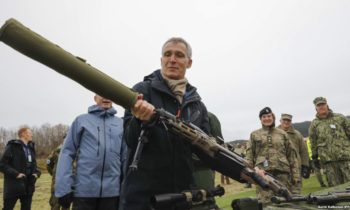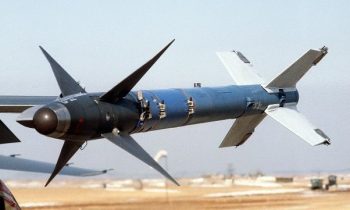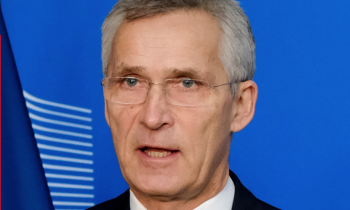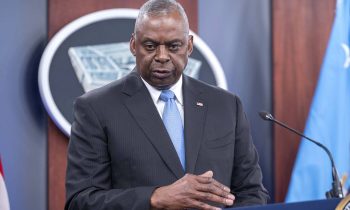 NATO Secretary-General Jens Stoltenberg says he expects Russia to behave in a “professional” manner as the Russian Navy and the Western military alliance both conduct exercises in the same area in waters off Norway’s coast this week.
NATO Secretary-General Jens Stoltenberg says he expects Russia to behave in a “professional” manner as the Russian Navy and the Western military alliance both conduct exercises in the same area in waters off Norway’s coast this week.
Speaking on October 30 as he attended NATO’s Trident Juncture war games in his native Norway, Stoltenberg reiterated that the alliance was informed last week about Russia’s planned tests of missiles in international waters off the Scandinavian country’s coast from November 1-3.
The missile tests and Trident Juncture exercises — NATO’s largest since the end of the Cold War — come amid persistent tension between the alliance and Russia.
The Kremlin accuses the alliance of provocative behavior near its borders, while NATO has sharply criticized the annexation of Crimea, which Russia seized from Ukraine in 2014, as well as Moscow’s backing of separatists in an ongoing conflict in eastern Ukraine.
Stoltenberg, a former Norwegian prime minister, sought to ease tensions, saying this wasn’t the first time exercises have been held near each other “without creating a dangerous or difficult situation.”
“So, I’m absolutely confident that the Russian forces will behave in a responsible way and act safely as will, of course, the NATO forces,” he added.
The NATO chief also said the alliance will monitor the Russian missile-firing tests, which he said “will not change the plan of our exercise.”
On October 29, a spokesman for Avinor, which operates Norwegian airports and air-navigation services, said Russia had informed it about the three-day missile tests in a so-called NOTAM, a notice to pilots about potential hazards along a flight route.
The spokesman, Erik Lodding, told the dpa news agency that the message was “routine.”
The missile tests are to take place west of the coastal cities of Kristiansund, Molde, and Alesund. The Trident Juncture drills will stretch from the North Atlantic Ocean to the Baltic Sea.
The live-field drills, which Stoltenberg called a “necessary exercise” to “send a strong signal of unity,” are set to run until November 7. They will involve around 50,000 soldiers, 10,000 vehicles, 250 aircraft, and ships from all 29 NATO allies, plus partners Finland and Sweden.
The aim of the exercise, which has drawn criticism from Moscow, is to practice the alliance’s response to an attack on one of its members.
Stoltenberg said NATO had invited observers from member states of the Organization for Security and Cooperation in Europe (OSCE), including Russia, to watch the exercises and will use the NATO-Russia Council to brief Moscow on the drills.
Conversely, NATO has accused Russia of failing to meet its international commitments by lacking transparency about its war games.
Russia held large military exercises called Zapad-2017 (West-2017) in September 2017 in its western regions jointly with Belarus, which borders several NATO countries, and last month conducted massive drills across its central and eastern regions.
Ambassadors from the 29 NATO countries are set to meet Russian officials on October 31 for the first meeting of the NATO-Russia Council since May. The discussions are also expected to cover the situation in Ukraine and the war in Afghanistan.
No details of the agenda have been announced, but an unidentified European diplomat was quoted as saying that Moscow asked for talks on a decades-old nuclear arms agreement between the United States and Russia.
U.S. President Donald Trump earlier this month declared his intention to withdraw from the Intermediate-Range Nuclear Forces (INF) Treaty, citing alleged Russian violations since 2014 and concern that China is not covered by its ban on ground-launched short- and intermediate-range ballistic and cruise missiles.
Russian Defense Minister Sergei Shoigu on October 30 warned that Washington’s withdrawal from the 1987 accord would have “serious consequences” for Europe.
Russian President Vladimir Putin has warned that the U.S. plan could lead to a new “arms race.”



